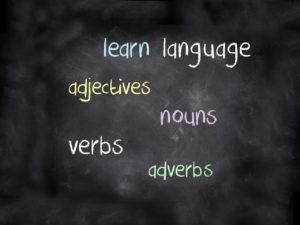As rules and regulations can change on a regular basis, we provide links to the German Embassy in South Africa. Where possible also links to additional information. We are not immigration consultants and can only refer you to the official pages.
An ICT Card is a residence title for the purpose of an intra-corporate transfer of a foreigner. An intra-corporate transfer is the temporary secondment of a foreigner
- to a national entity belonging to the undertaking by which the foreigner is employed, if the undertaking is located outside the European Union, or
- to a national entity of another undertaking of the group of undertakings to which the undertaking located outside the European Union belongs and by which the foreigner is employed.
A Mobile ICT Card is a residence title in accordance with Directive 2014/66/EU for the purpose of an intra-corporate transfer within the meaning of section 19 (1) sentence 2, if the foreigner possesses a residence title which is valid for the duration of the application procedure and has been issued by another member state in accordance with Directive 2014/66/EU.
The ICT card enables managers, professionals or trainees to work in a German branch for a set amount of time.
The ICT card can be issued to employees, managers or specialists for a duration of 3 years.
For trainees, the duration is limited to a maximum of 1 year.
How to apply
You need to apply for a normal work visa at the Germany Embassy
Your family applies for a Family reunification (spousal and Child to a foreign parent) visa.
Your spouse will need to have A1 German at least. See the BAMF Flyer for additional info.
Legal Basis
Resources on the web
- Bamf – Intra-corporate employee transfer
- BAMF Flyer – intra-corporate transfer for third-country nationals
- Make it in Germany – ICT card
Shared experiences
The following were sent to us to share
XXX is a global company and I worked for the Dubai office overlooking Africa. I asked in 2018 to management any chance of a global transfer and the following options were provided to me. Dubai, Czech Rep, or Germany. Obviously, Germany was best suited for Kids and language. Once we decided, I received a new Employment offer contract linked to the business entity in Germany with country-related employment benefits. Once agreed and signed, the company appointed PWC (Düsseldorf and Cape Town) to handle the immigration and relocation.
At first, we received an online platform registration with PWC called “Mymobility” where all documents, task, and services were registered and logged, as well as all documents uploaded to the document library. So the portal was split in two.
- Immigration
- Taxes
For immigration, they supplied us with application forms that can also be found on the German embassy website, and we had to provide the following document copies ( never asked for original or Police certified) and they handled all Translations which we received copies of.
- Unabridged birth certificates
- Unabridged marriage certificate
- Passport copies
- Id Copies
For my application for work, they requested a new work contract and qualifications and after a few weeks per post, I received an original Work Permit which I used for my Visa application, so PWC did the application for the work permit on our behalf and with the original Work Permit (Valid for 3 years on paper).
The family then applied in conjunction to a Family reunification visa ( spousal and Child to foreign parent) We submitted all applications to TLC in Pretoria and received a normal 3 Month Schengen Visa without any Flight booking, but we needed 3 months travel insurance ( this was split 2 month/ 1 month from 2 companies and we canceled the second one after Residence permits were received)
So we arrive in Germany in July 2019 and started work in August We applied for Residence permits within 2/3 weeks from arrival and all were granted 3 years. My wife had no A1 so the Landrat tested her on that day and was satisfied she is A1 capable.
With our first Residence as stated, we all had 3 years of residence linked to my work permit and I also received a Zusatsblatt with residence (little paper I had to carry in my passport the full time), because I do not carry a blue card! With residence renewal, mine was extended to 2028 linked to my passport expiry, as well as my children, but the wife only had a 2-year extension. The reason for this is she already has B1 and Leben in DE, so after July 2025 if I also have B1, we can apply for Niederlassung.
Moving Forward PWC then also closed all my Taxes in SA (not immigrated, just to have a Tax clearance) and started the first year of income for Germany. Apparently, this service from PWC is extremely expensive, however, from HR the comment was it is worth it as the approval rate is high and way less stress as both myself and the company had direct access to PWC for tracking and support. Even all the nitty gritty info like registration and accommodation rental can be linked to PWC to ease other tax processes.
Related content

Checklist after arriving in Germany
Your first days in Germany can be very overwhelming and confusing. The forms you must fill in and the administrative tasks you must do will

Family Reunification Visa
“German citizens or citizens from non-EU countries who have an Aufenthaltserlaubnis (residence permit) or a Niederlassungserlaubnis (settlement permit) are allowed to bring their relatives to

Learning German
There are several approaches to learn German, all of which can help you achieve your language learning goals. You can opt for convenient online sites


You must be logged in to post a comment.